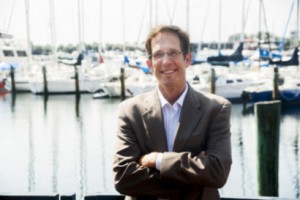 Urban farms on public school grounds and university classrooms have led Kent “Kip” Curtis to local politics. Curtis, an adjunct professor for environmental history at USF St. Petersburg, has left the classroom to challenge candidate Peggy O’Shea for a seat on the Pinellas County School Board, District 3 in the Aug. 26 primary.
Urban farms on public school grounds and university classrooms have led Kent “Kip” Curtis to local politics. Curtis, an adjunct professor for environmental history at USF St. Petersburg, has left the classroom to challenge candidate Peggy O’Shea for a seat on the Pinellas County School Board, District 3 in the Aug. 26 primary.
Curtis, 48, is from Winsboro, Mass. He studied at the University of Kansas for his P.h.D. with classmate and USFSP professor Ray Arsenault. He previously taught at Eckerd College.
Curtis hopes to reach out to chronically struggling schools in Pinellas county. His experience as a parent of two children who attend John Hopkins Middle School and Thurgood Marshall Fundamental Middle School has motivated him to improve the public school experience in Pinellas county. He hopes to reduce racial and gender gaps in education, provide career education opportunities for non-college bound students, and focus classroom investment.
The Crow’s Nest posed questions to Curtis about the university and his motivation for candidacy.
Crow’s Nest: What was your impression of USF St. Petersburg and the classroom environment?
Kent Curtis: It’s great. I really engaged students who understand the value of their education and are really working hard. I’ve worked with USFSP students on a volunteer basis with my nonprofit organization, the Edible Peace Patch Project. I had never worked with them in the classroom until this summer. They were some of the most earnest students and they really value their education.
CN: How have your experiences as an educator motivated you to become a candidate?
KC: In public education, we’ve lost our way a little bit. As an educator, I refer to education from its Latin root, “to draw out.” We’ve turned public education into a science of filling a vessel. We measure students through these high stakes questions, whether it’s right not. John Dewey said that education is not about filling students with information, it’s about teaching the student how to learn and how to be curious. It’s important for them to learn information and find information. I’ve always had that as a practice in my classroom. I tend to lead discussion based courses and engage students. If you don’t get students curious about what they’re working with, you’re not really teaching them.
CN: How about as a parent?
KC: My kids started coming home with sample tests with what they scored on the FCAT and that was the end result at school. I also became involved in lower achieving schools in the South side neighborhoods and they were getting an even worse deal … The result is what we have today, which is five of the worst schools in the state in the south side. That’s a real social justice issue there. Education is one of the most important institutions in a democracy …
CN: What motivates you as an aspiring politician?
KC: Part of what motivated is that I’m trained in U.S. and I have in past 20 years that the great experiment of the United States requires participation of good people in the political process. A lot of people feel disempowered because of the amount of money it takes to get in campaigns and the kind of scrutiny you get as a public servant…I want to live up to my own beliefs that it was an obligation to be involved in the public sphere, that politics matter. The laws are written, the policies are created, and these really move in time. I love being in the classroom, I love being a professor, but I can’t do as much from there. The best thing that we can do is engage politically the sources of those problems to make effective.


